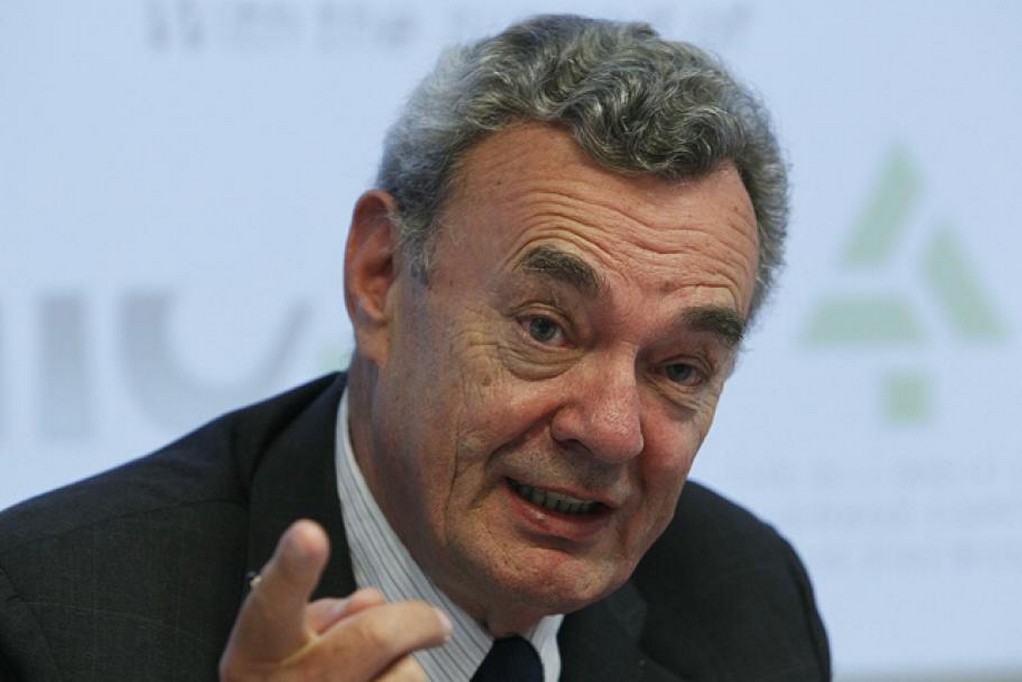Unless the opinion polls have got it very wrong, next month’s European elections will trigger a massively disruptive ‘Blame Game’ within the EU, writes Giles Merritt.
Hurried realignments of longstanding political alliances and frantic searches for scapegoats threaten to change the face of the European Union in the eyes of the world as well as at home.
The practical implications for EU-level policymaking seem to have received very little attention in Brussels. This is perhaps because the trouble still lies in the future, and maybe because it’s so unpalatable. Yet the likely impact merits close attention; as well as threatening chaos, it could have some positive effects.
Voters’ forecast shift to the hard right is set to upset if not reverse policies that have been central to the European project for decades.
If this comes to pass, the changed balance of power in the European Parliament will greatly exacerbate tensions between member states that favour a more muscular EU and those that are increasingly nationalistic. Europe’s route towards ‘ever-closer union’ is at a cross-roads.
Environmental policies that helped set global climate change efforts stand to be derailed. In addition to green policies turning brown, the incoming European Parliament seems likely to demand more restrictive immigration and asylum policies while also favouring a tougher line on justice issues and civil liberties.
This destabilising scenario is undoubtedly welcome in the Kremlin and Beijing, but it has received little attention in Europe.
That may reflect how the five-yearly European elections are seen more as barometers of local issues, either censuring or approving the incumbent government and attracting embarrassingly low voter turnouts.
They are, however, the EU’s only clearcut claim to democratic respectability, so this looming parliamentary upset risks alarming consequences.
Different pollsters’ projections can be contradictory, but broadly, the picture is of political fragmentation across Europe. Smaller extremist parties on the right are steadily eroding the power of major centrists like Christian Democrats or Social Democrats.
A quarter of the MEPs to be elected next month to the slightly enlarged 720-seat European Parliament are expected to be on the euro-sceptic far-right.
he turmoil that promises will certainly be matched by disarray and finger-pointing among the Europhiles. How can it be, they will ask, that the EU’s essential role as a bulwark against Russian aggression, unfair Chinese competition and falling living standards hasn’t been understood by the voters?
The excuses sure to be trotted out will stress why the hard-to-explain complexities of EU decision-making are blotted out by the populists’ simplistic solutions.
The deeper, more fundamental problem, of course, is that the EU is paying for its longstanding neglect of its own communications outreach. The European Commission’s cultural inability to adapt to the Information Age risks costing it dearly.
The same goes for EU member governments. National politicians’ ingrained habit of taking credit for positive developments while pinning blame for setbacks on the EU has created a climate of public dissatisfaction with the European project.
Come autumn this year, the EU institutions will have to grapple with the realities of the rightwards shift.
Some member states may present Eurosceptic candidates as their commissioner – an awkward novelty for a collegial system that has been overwhelmingly Europhile.

Ursula von der Leyen.
If Ursula von der Leyen gets her desired second term as commission president, her increasingly controversial authoritarian style will probably be challenged.
Confronted by geopolitical pressures from Moscow, Beijing and perhaps Washington if Trump were to return, EU solidarity will be more vital than ever.
Containing the hard-right won’t make that any easier, but it’s possible that this is a cloud with a silver lining.
Unruly though they can be, political coalitions that have to thrash out conflicting views to achieve consensus are a widely respected European norm.
Disagreement and possible turmoil at the heart of EU policymaking could even introduce a new dynamic. Certainly it’s likely to give a stronger sense of drama and democracy to a European Union that many voters see as a remote and unelected bureaucracy.
Giles Merritt is the Founder of Friends of Europe, and was its Secretary General between 1999 and 2015, and its Chairman between 2016 and 2020.
A former Financial Times Brussels Correspondent, Giles Merritt is a journalist, author and broadcaster who has for over four decades specialised in European public policy questions. In 2010 he was named by the Financial Times as one of its 30 most influential “Eurostars”, together with the European Commission’s President and NATO’s Secretary General.
- The views expressed in this Frankly Speaking op-ed reflect those of the author and not of Friends of Europe.
Click here for more News & Current Affairs at EU Today
_________________________________________________________________________________________________________

Follow EU Today on social media:
Twitter: @EU_today
Facebook: https://www.facebook.com/EUtoday.net/
YouTube: https://www.youtube.com/@eutoday1049




